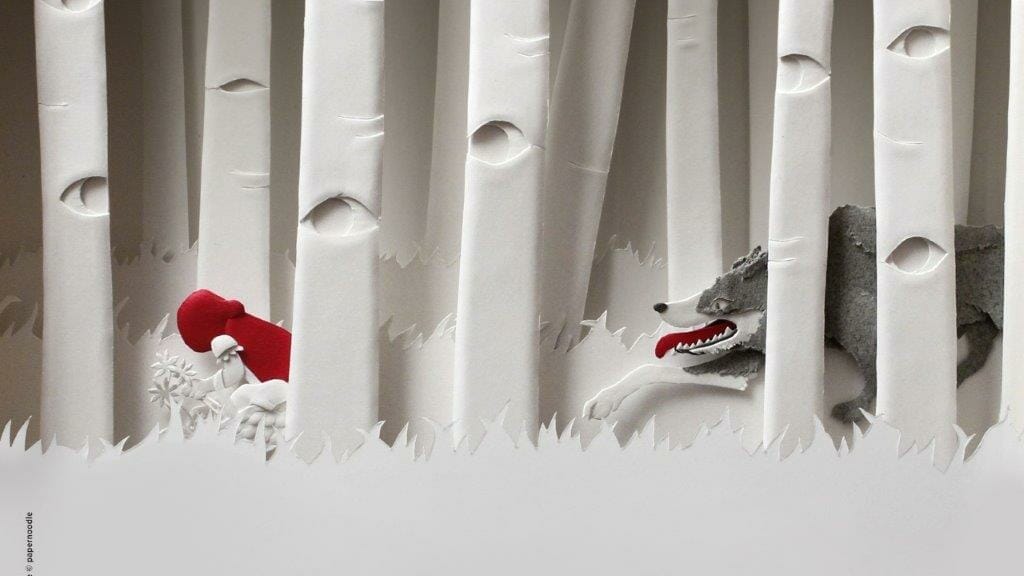Movement Director Lucy Cullingford talks to us about how the Unicorn Theatre is responding to the current crisis with a new digital theatre project Unicorn Online – a fresh, innovative approach to making online theatre for young audiences during the building’s closure. Launching with Anansi the Spider Re-spun and streamed in partnership with The Guardian, this unique project brings theatre direct from the homes of the artist to the homes of the audience.
Each week from Sat 30 May, an online story of Anansi – the ultimate mischief-maker and master spinner of yarns – will be streamed for free on the Unicorn’s YouTube channel and The Guardian’s website. The show is aimed at ages 3 to 8 years.
Watch Anansi the Spider Re-spun here
Unicorn Online is launching with Anansi the Spider Re-spun, what can you tell us about it?
Anansi The Spider Re-spun is a digital reimagining of the Unicorn’s 2019 production of Anansi The Spider. The Anansi stories are part of a rich oral storytelling tradition that originated hundreds of years ago in West Africa and the Caribbean, all based around a mischievous trickster spider called Anansi who plays naughty pranks on animals and people alike.
The live show was hugely successful as it succeeded in immersing the audience in a vibrant and sensory experience, and this new online version is also exciting and has many of the elements that made the live version so vivid. This new digital experience is still full of music, sound and song but, because it was made during lockdown, we have been using the actors’ homes as the filming locations and they have all filmed themselves on their smart phones while we have been working with them remotely (like many people across the country!) via Zoom. Attempting to capture a sensory experience for the audience using this method has been challenging but it has also enabled us to explore a new visual language in edit and post-production.
We’re seeing lots of filmed versions of previous productions being released, but this is brand new, why was it important to create something new for online?
I know that director Justin Audibert wanted to make a piece of work that would provide joy and fun for young people, parents, carers and teachers but which also in some way also acknowledged that we are living through this difficult moment. He also felt that stage production’s strong storytelling aesthetic would adapt really well to a digital format.
Theatre is having to respond to a whole new world of technology and connectivity. Online and Zoom are our new vehicles for connectivity. Theatre-makers must adapt and learn how to master this new world in order for their stories, ideas and creativity to be seen and heard.
Making a show this way is not ideal and it made me crave the live sharing however, it has been a good experience to feel part of a solution, to collaborate and to create a piece of work that can reach new audiences while theatres are closed. This way of making work is just one example of the Unicorn’s range of talent, creative thinking and brilliant productions.
The original cast have returned for Re-spun, why do you think they were so keen to be a part of this new work?
The rehearsal process was a very collaborative one. The actors co-devised the show alongside the creative team and were keen to be a part of this new chapter – they have real investment in their characters, the story, how the show was made and the Unicorn’s audience.
You’ve been directing movement, tell us how that works in our new world of being socially distant?

This new world is ever evolving. The concept of living in a socially distant way and making theatre is pretty challenging.
When Movement Directing a play, the dominant language I work with are the elements of space and time. I think part of my job is to ask questions that enable the director and actors to investigate a set of unique spatial rules within the world of the play. Through the language of space, we can navigate a difference in etiquette, mode of greeting and social behaviour.
Living in a socially distant world has imposed a new set of rules. Our mode of greeting has shifted. I’m observing that we are tending to avoid eye contact rather than seek it. People can become confusing obstacles to pass round rather than to meet. We tend to give space. There is no touch or physical contact. We engage in a polite and responsible glide of the two-meter rule. Personal space has a boundary. We negotiate this like a dance.
Public spaces seem to hold a strange grace as our senses are made aware of the unspoken coded distance from and to each another.
Did you learn anything new about yourself as a movement director as you adapted to working over Zoom?
The creative process felt more didactic and less holistic. The detail was important.
It affirmed that sometimes the angle of the body or an eye line can make a big difference to the story and image on film. I enjoyed the specificity.
I found it challenging at first to trust I was reading the right tensions in the actor’s performances. In a live space it is clear when bodies aren’t holding the right energy. You can see it and feel it. It is visceral.
This process has been interesting in learning how to adjust these theatre instincts and find a new language of physical direction through a two-dimensional viewpoint. Tempo, speed of interaction, rhythm and dynamic energy read differently on film.
There are three episodes, do you have a favourite and why?
Anansi and the Two Dinners! I love the family unit. The dynamic between the father and the two kids is so endearing. They go on a quest to enjoy the best things in life – which involves eating as much as they can, then having a party. Unfortunately for Anansi it doesn’t quite go according to plan. But they still have fun.
What would you say to anyone thinking of watching Anansi the Spider Re-spun
It’s going to be a great watch, for your children aged 3 – 8 and for you. These short episodes offer a little bit of fun, mischief and joy! What’s not to love?!














